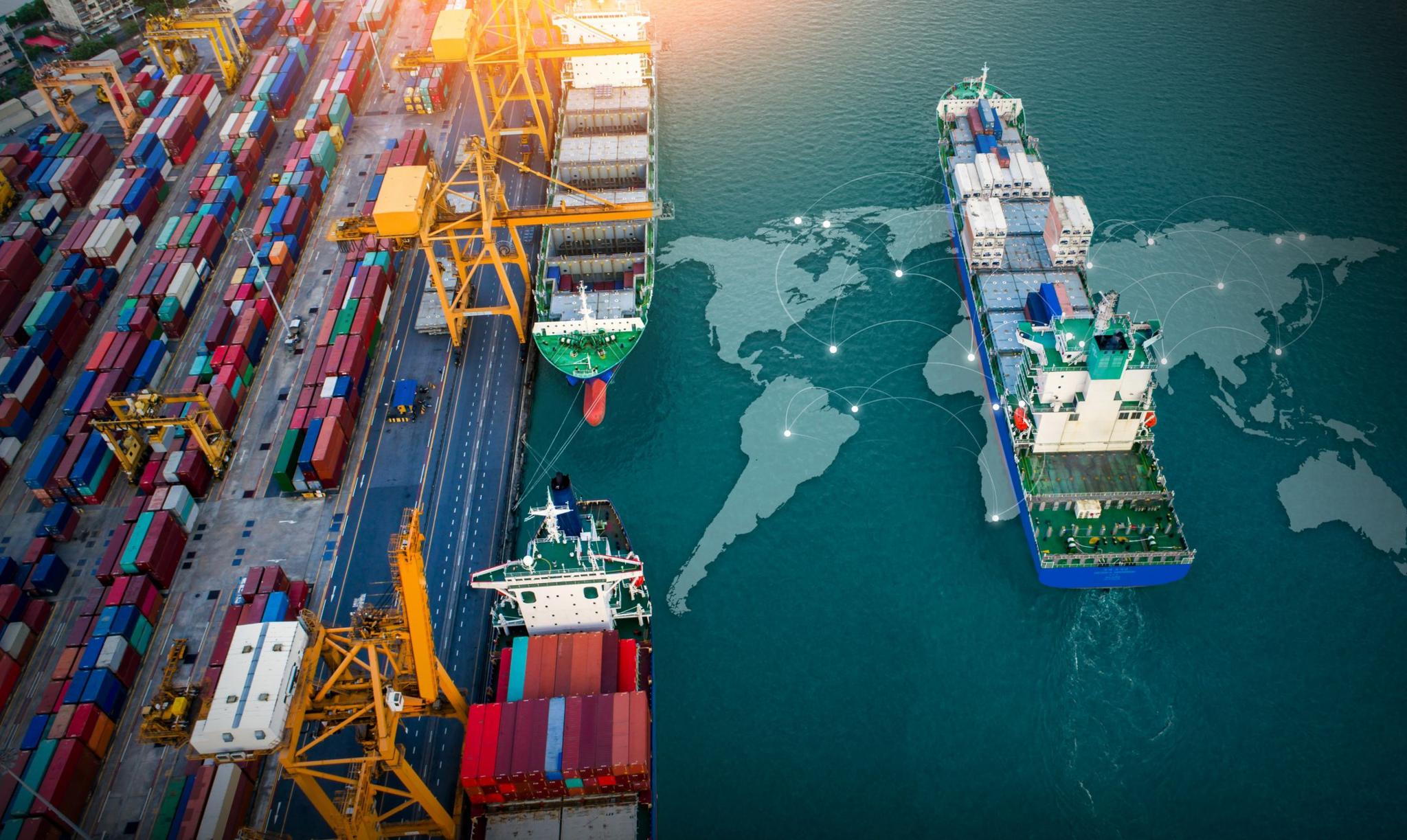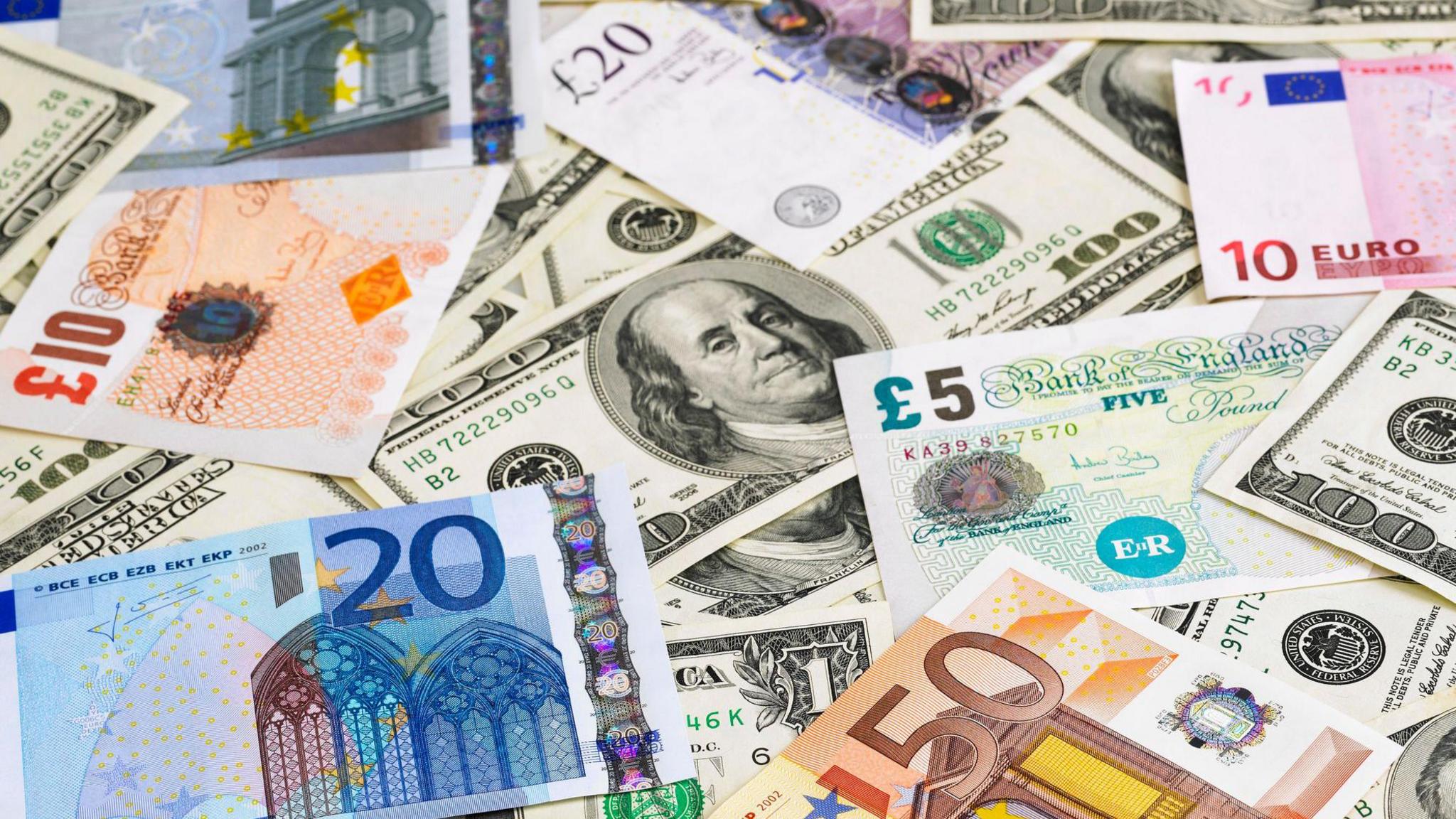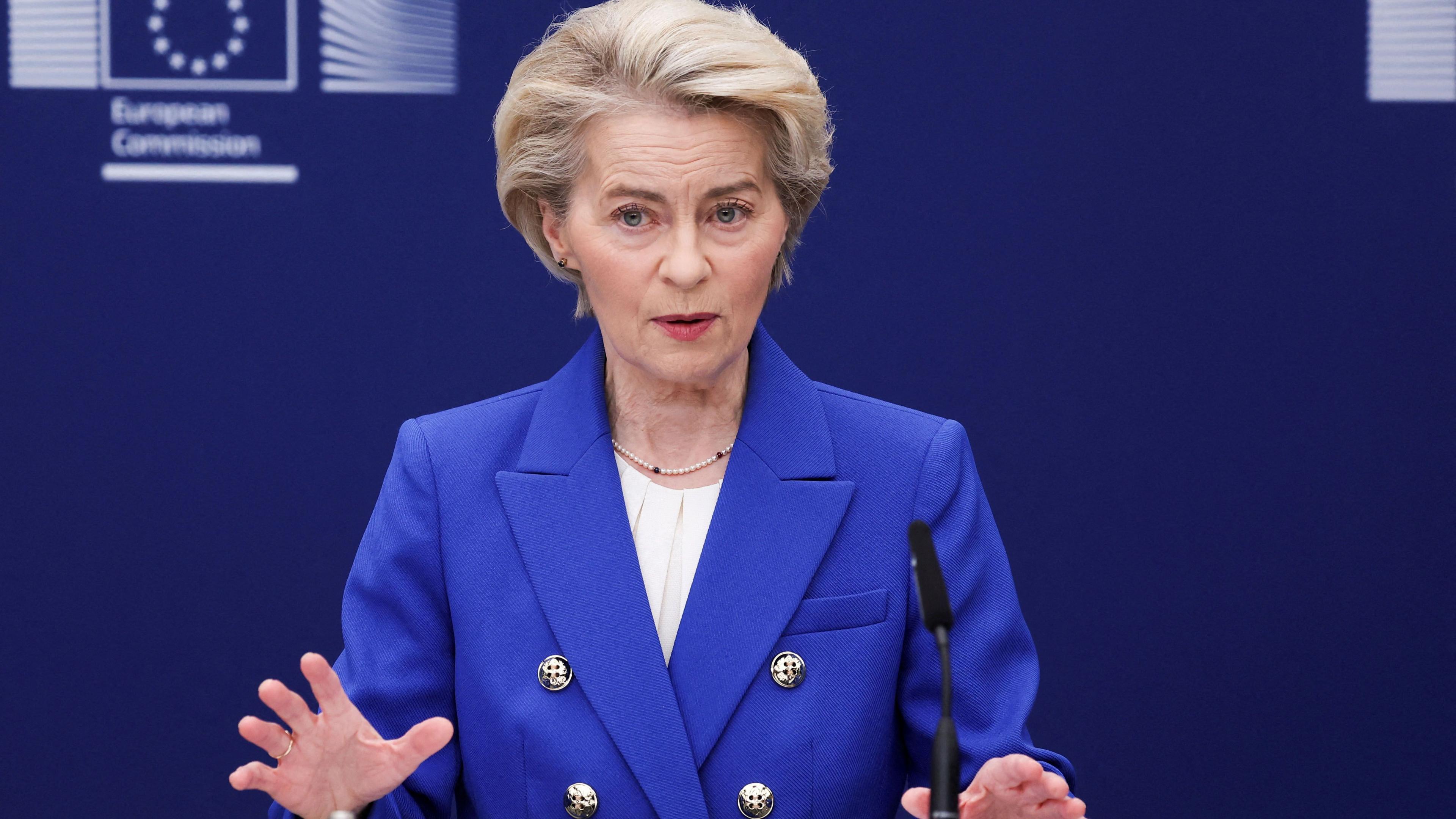President Trump announces global tariffs
What has Donald Trump said about tariffs?
- Published
US President Donald Trump has announced universal tariffs on all imports into the US will take place from 5 April.
A tariff is a type of tax put on imports or exports to or from a country.
Some countries like the UK, Saudi Arabia and Australia will be charged a base 10% tariff on goods.
Other countries face much higher taxes on imports including the EU which will be charged 20% and China which faces the highest tariffs of all.
President Trump said the measures were necessary because countries were taking advantage of the US by imposing high tariffs on US goods and putting in place other trade barriers.
World leaders have reacted strongly warning the tariffs could lead to a trade war.
Many of the things we buy come from different countries, and when countries buy and sell things to each other this is called trade.
A trade war is an economic conflict where countries raise taxes against each other and react to what it sees as another country's unfair trade practices.
More like this
- Published7 November 2024
- Published4 February
- Published27 March
The European Commission chief Ursula von der Leyen called it a "major blow to the world economy".
The President has also announced that the United States has brought in a new 25% tariff on cars not built in the US.
This will happen almost immediately, from midnight on 3 April.
The previous current rate of import tax for cars was 2.5%.
Keep reading to find out more about tariffs and how countries have reacted to the announcement.
What is trade?

Countries bring things in from other parts of the world to be sold, these are imports.
For example, the UK imports bananas as they are a fruit that does not grow naturally in the UK.
When countries send things to other parts of the world to be sold, these are exports.
For example, the UK makes a lot of cars, and exports them to other countries to be sold.
Trading means countries can access all sorts of goods and services they would not otherwise have, as well as creating stronger relationships with one another.
What is a tariff?

Tariffs are a common tax in trade, used by many different governments.
The money that is raised from a tariff may then be used by that government to fund other things for their citizens.
By raising a tariff a government may protect goods made in their own country because goods coming in to the country will cost more because of the taxes charged on top.
President Trump has previously said he wants to raise tariffs in order to protect US jobs and industries.
He hopes that by increasing the price of products made abroad, it will encourage Americans to buy US-made goods instead.
How have other countries reacted?

European Commission President Ursula von der Leyen said the tariffs were a "major blow" to the global economy
Leaders around the world have been reacting to the tariffs.
UK's business secretary Jonathan Reynolds said the UK will keep pushing for a deal with the US that would strengthen their "balanced trading relationship".
Prime Minister Keir Starmer said: "Clearly, there will be an economic impact from the decisions the US has taken, both here and globally" but promised to respond with "cool and calm heads".
Ursula von der Leyen who is in charge of the European Commission which does the day-to-day work of running the EU said the new tax imports will see "uncertainty spiral", causing "dire" consequences "for millions of people around the globe".
China faces a 34% tariff on top of 20% tariffs which are already in place which means the country faces 54% tariffs, the highest tariffs overall.
The country has called for the US to "immediately cancel" the taxes and has promised countermeasures saying there is no winner in a "trade war".
Some experts are warning a trade war could happen if countries react with their own tariffs.
